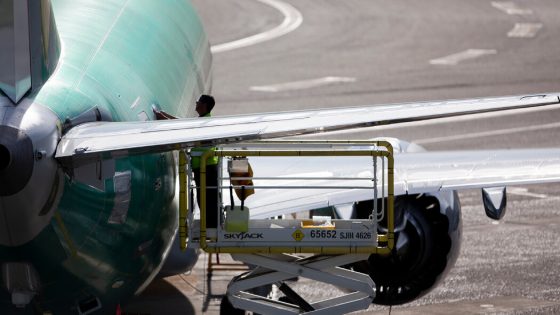Boeing has faced intense scrutiny and pressure since a panel blew off a 737 Max 9 shortly after the plane, an Alaska Airlines flight, took off on Jan. 5. The episode raised fresh questions about the quality of the planes the company produces several years after two Max 8 planes crashed, killing nearly 350 people.
Interviews with more than two dozen current and former employees reveal longstanding concerns about quality, particularly as pressure increased to keep production going in the company’s factories.
Now, Boeing faces an immense challenge as it seeks to make changes that improve the quality of its products and regain its credibility with lawmakers, regulators, airlines and the public.
Here are some takeaways.
Quality issues date back years.
Current and former Boeing employees said that for years it felt as if quality took a back seat to keeping planes moving through its factories.
In interviews, former and current Boeing employees described worrying practices, including attempts to circumvent quality procedures. One was “inspector shopping,” in which workers would seek out inspectors willing to sign off on work with little pushback.
Boeing said it did not allow inspector shopping and had increased the number of quality inspectors for commercial planes 20 percent since 2019. Inspections per plane also rose a similar amount over that period, the company said.
Even before the two fatal Max crashes, in 2018 and 2019, Boeing was trying to keep up with its main rival, Airbus, which had introduced a new, fuel-efficient plane a few years before the Max began flying. After the crashes, Airbus gained even more ground, putting pressure on Boeing to catch up once the Max was approved to fly again in late 2020.
The company has lost thousands of experienced workers.
Boeing’s work force went through a major turnover because of the coronavirus pandemic. The company lost thousands of experienced employees to layoffs, buyouts, retirements and resignations.
Even though Boeing has since replenished its ranks, current and former employees say a lot of institutional knowledge has been lost, and its workers have less experience than they used to. Boeing’s suppliers, facing similar problems, have also had trouble producing parts at the rate that Boeing wanted them.
The company is facing heightened scrutiny.
Since Jan. 5, the company has faced wave after wave of negative publicity. Its regulator, the Federal Aviation Administration, increased inspections at the company’s factories. And its customers have criticized Boeing.
A six-week F.A.A. audit of Boeing’s 737 Max production documented dozens of lapses in quality-control practices. The agency gave the company until late May to address quality-control issues. The Justice Department has also started a criminal investigation of the company.
Boeing says it’s making many changes.
Boeing has announced several steps to improve quality, including adding inspections at its factory in Renton, Wash., where Max planes are assembled.
It has also said it will no longer accept Max bodies from Spirit AeroSystems, a key supplier based in Wichita, Kan., that still need work. It previously tolerated flaws that could be fixed later in the interest of adhering to a tight production schedule.
The company also said that since Jan. 5, employees had asked for more training and that it was working on meeting those needs, including by adding training on the factory floor this month.
And on Monday, Boeing announced sweeping changes to its leadership: Its chief executive, Dave Calhoun, who took the job in January 2020 vowing to improve the company’s safety culture, will step down at the end of the year; the head of Boeing’s commercial airplane unit, Stan Deal, is leaving immediately; and the board chairman, Larry Kellner, has stepped down from that position and will not seek re-election to the board.
Source Agencies



